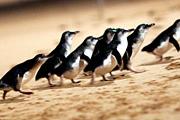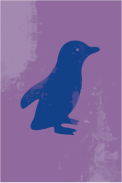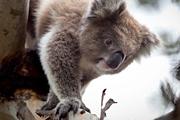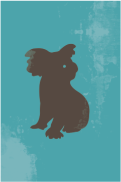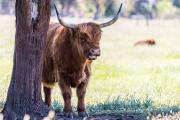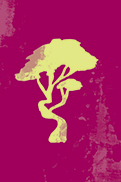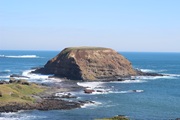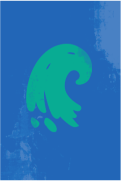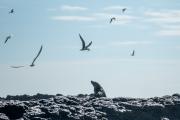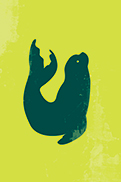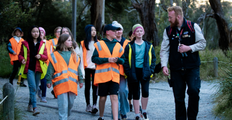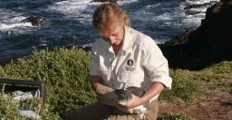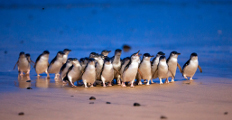Little Penguin released back into the ocean
Little Penguin released back into the ocean
‘Red’ was rescued by Wildlife Victoria Emergency Response Service on 7 April at Shelley Beach on Phillip Island. Wildlife Victoria’s travelling vet team performed emergency surgery on the penguin and was placed into 24hr intensive care.
Red was then transferred to Phillip Island Wildlife Rehabilitation Clinic for on-going care.
While the initial surgery saved the penguin’s life, a bald area of scar tissue affected his ability to grow the waterproof feathers he needed to survive in the ocean. More surgery on 27 April at Newhaven Veterinary Clinic followed to fix the issue.
A Wildlife Victoria spokesperson said:
“Wildlife Victoria is so pleased that this brave little penguin has made it back into the wild. Our Emergency Response Service took the initial call from a concerned member of the public who had spotted the penguin on Shelly Beach. Our travelling veterinary service was on hand to attend, which is so important for good outcomes for injured wildlife.”
“Wildlife Victoria congratulates the Phillip Island Nature Park for its considerable care, skill and dedication invested into Red’s rehabilitation, and also to the fantastic vets at Newhaven Veterinary Clinic. And, of course, a huge thanks to the member of public who called Wildlife Victoria to let us know about poor little Red.”
Nature Parks’ Wildlife Rehabilitation Clinic manager Kim Noy said after intense rehabilitation, Red is preparing for his release.
“After several weeks in recovery, he was swim tested and found to be fully waterproof. At the Wildlife Clinic, little penguins must be able to swim for three hours and still have dry feathers to be ideal for release back into the wild,” Ms Noy said.
After six weeks Red had his final weigh-in, feed, and swim and was released back to the ocean.
“Adult little penguins are released on the beach into the ocean. With the help Red received from Wildlife Victoria and our rehabilitation clinic, he is well prepared to find the other penguins out at sea and re-join the group,” Ms Noy said.
Background
The Phillip Island Wildlife Rehabilitation opened in 2011 and is funded through Phillip Island Nature Parks ecotourism activities and the Penguin Foundation adopt a penguin program.
Phillip Island is home to one of the world’s largest Little Penguin colonies, with 40,000 penguins calling the Island home.
Wildlife Victoria is the state’s wildlife Emergency Response Service and is currently raising funds to meet a 15% year-on-year increase in demand for services. More information on how to donate here.





